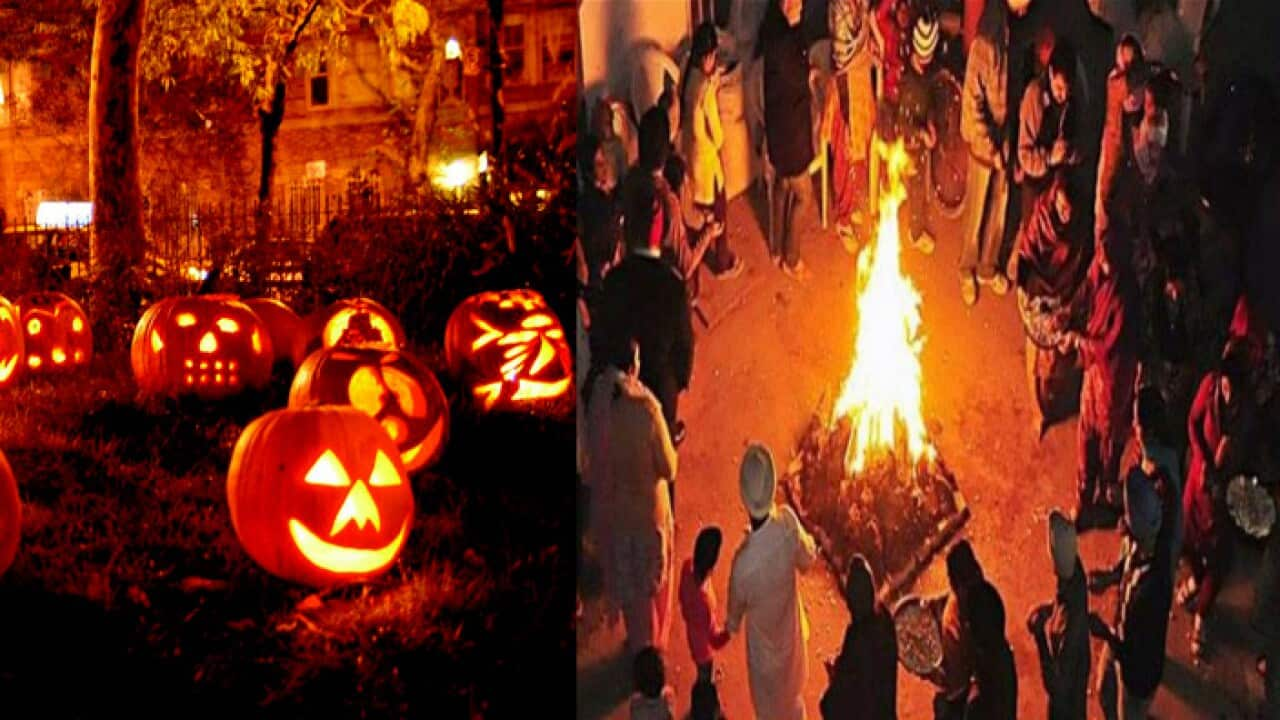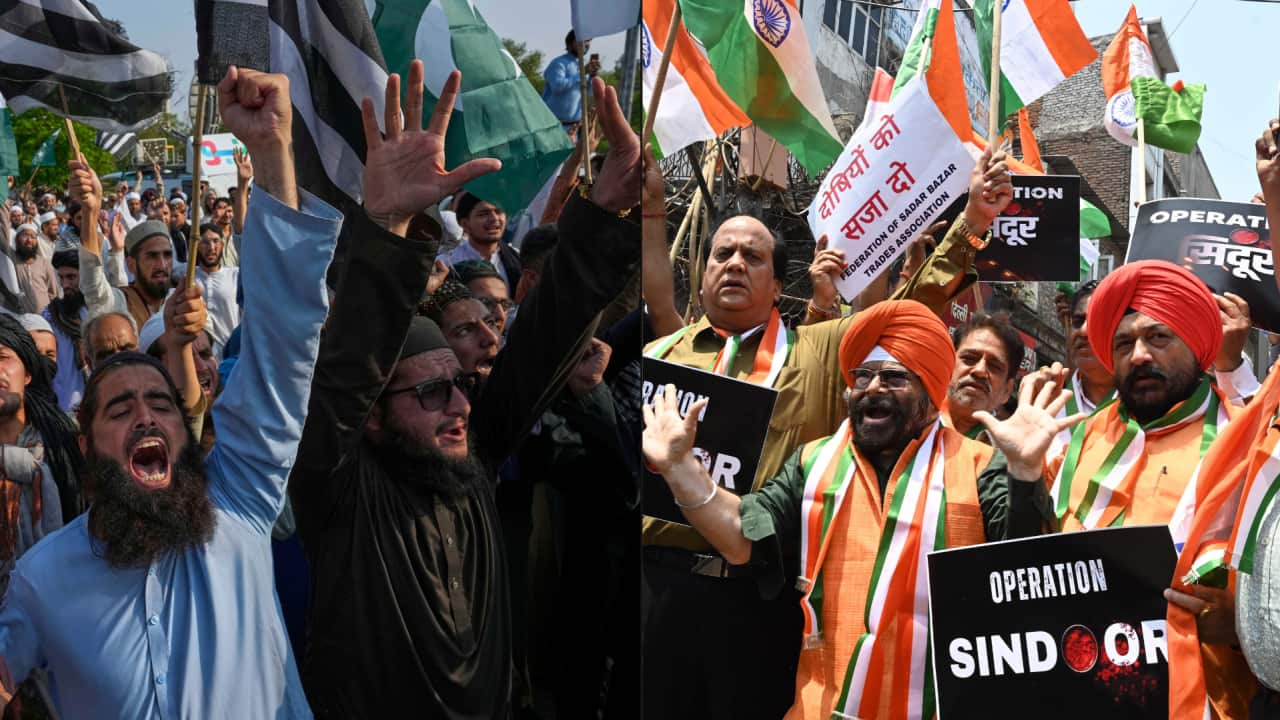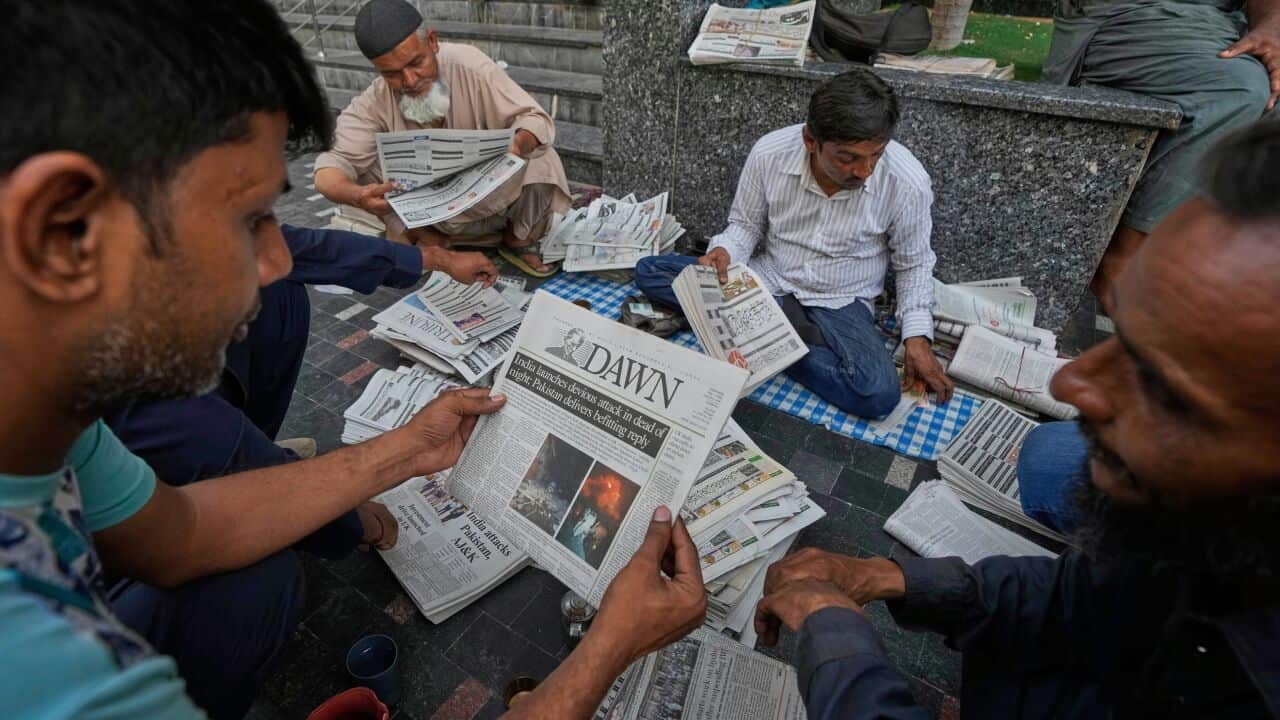It is January 13 and yes, it is Lohri. Along with Vaisakhi, Lohri is a true-blue Punjabi festival, replete with rustic and robust food, foot-tapping music, energetic dance and the warmth of the bonfire as well as of the togetherness that binds family and friends. And of course, it is a celebration of the farmers toil of an entire crop season that sways in all its golden glory, awaiting to be reaped.
For those of us living outside India, observing Halloween celebration is a yearly ritual. Every year, just as October sets in, signs of Halloween begin to surface in the form of spooky costumes, broomsticks, fake spider webs, mock witchcraft accessories and candies.
You must be wondering why I made an abrupt switch from Lohri to Halloween, festivals whose cultures and histories are separated by leap years. While Lohri celebrates new life, new marriages, new births and new crops, Halloween is symbolic of all things morbid albeit in a humorous manner.
There are quite a few similarities between Lohri and Halloween. Let’s see how.
In Punjab, during the Lohri season, we see children jostling around homes, knocking at people’s doors and demanding “Lohri”. Essentially, what they want and get is some seasonal goodies like gachak, rewri, gur and/or money. Along with these, children also ask for dungcakes, called “paathi” in Punjabi, which is considered auspicious to light the Lohri bonfire with. And while they are at it, they sing folk songs.
Halloween falls on October 31 every year and is considered to be a celebration of the dead. Although, just like Lohri, it has its origin in the celebration of harvest, it has achieved a rather “spooky” connotation in contemporary times. It was first celebrated in the erstwhile Celtic areas, which covered a large part of Europe.
The Celtic people observed a festival called Samhain, which marked the end of the harvest season and the beginning of winter. Just like Lohri, the Halloween period is a bridge between two climatic and crop seasons. Because it signifies the change in seasons - from new crops to their end -- Halloween is deemed as a symbol for the bridge to the world of the dead. With the passage of time, Halloween has evolved into a festival of fun, scary costumes and haunted house parties with spooky dress codes and candies.
During the Halloween period, you often hear your doorbell ring and children dressed up as witches or wearing Dracula masks and throwing two choices at you: “trick or treat”? If you are new to this culture, you are left befuddled at the sight of a cute little monster lurking at your doorstep, feigning a scary appearance but looking rather funny. And then s/he unleashes the ghost inside who demands you to choose from trick or treat.
If you are timid, you’ll offer them some goodies from your kitchen like chocolate or candy or cookies. And if you don’t, you are considered brave by default as now the ghosts and the ghouls inside these cute little monsters pounce at you to play a little prank you least expected. You might find a plastic spider crawling up your body or a funny one jump at you wearing a scary mask from the Hollywood movie The Scream.
This is starkly similar to Lohri, where children knock at your doors in Punjab and expect money and gachak, gur and rewri as if it were their right and nobody minds! For those who lavish them with what they expect, they sing songs of prosperity and happiness. And for those who deny them of their bounty, they unleash their naming and shaming talent in this way:
Hukka bai hukka, eh ghar bhukha!
Lohri has a whole gamut of folk songs that have become a cult. The lead, of course, is taken by ‘Sundar mundariye’, which can undoubtedly be termed as the anthem of Lohri.
Along with this, there are other songs also which children sing from door to door, demanding their right to receiving ‘Lohri’. Similarly, Halloween also has its songs for children’s door-to-door candy collection expedition.
Halloween sounds like Lohri? Yes, it does! In fact, when I first observed children celebrating Halloween after I moved to Australia in 2016, I would call it “angrezaan di Lohri”. If you observe, the dates of both these festivals are a mirror image of each other. While Lohri falls on the 13th, Halloween falls on the 31st. it is a strange case of East meets West in the festival tradition. Just like festivals across the world, Lohri and Halloween bring together family and friends over food, dance and music.




